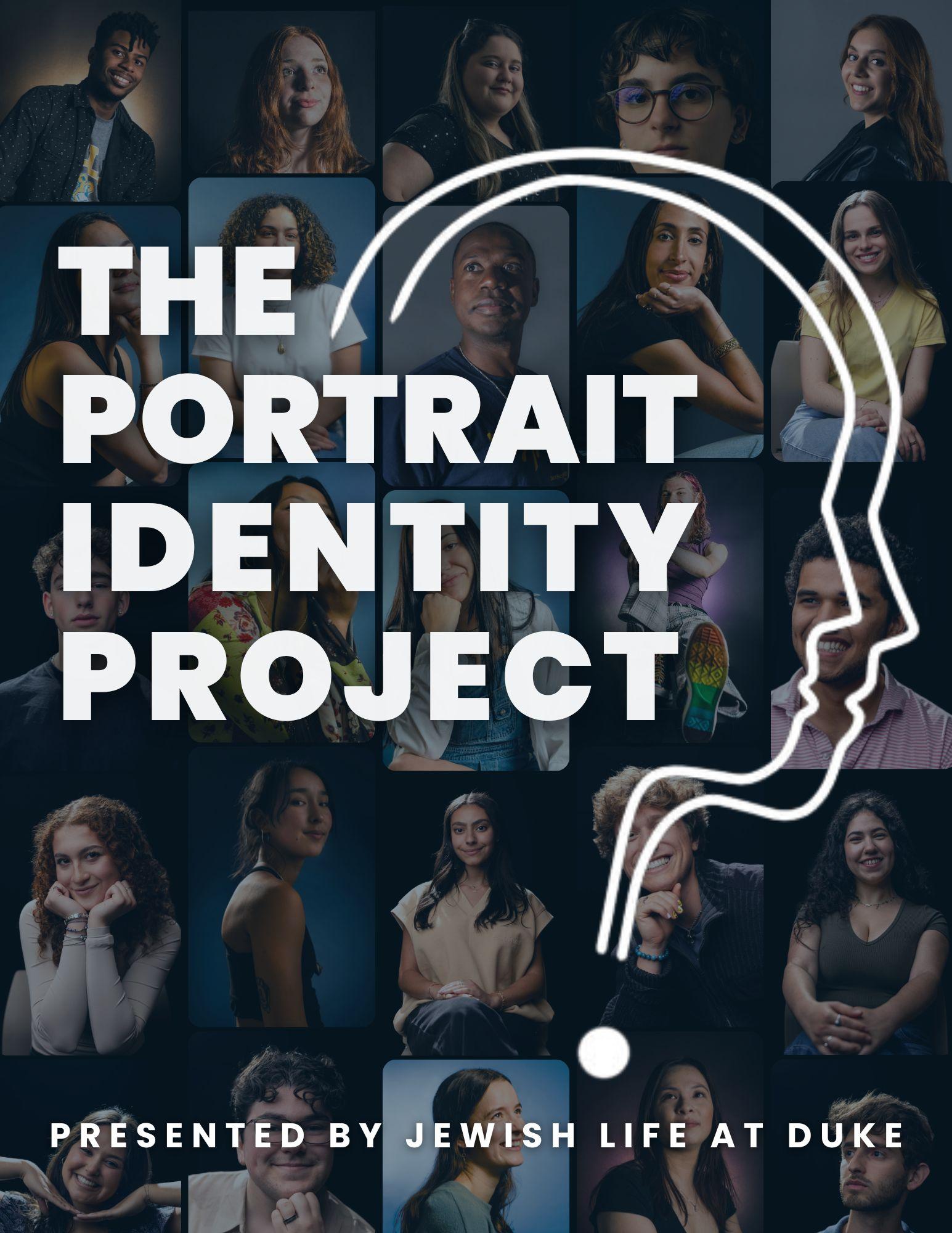

dedication
This book is dedicated to the students who shared their stories with vulnerability and wisdom. In reflecting and sharing your story, you create the opportunity for connection, reminding us of our shared humanity and that people cannot be put in a box.
A special thanks to the Theodore and Maxine Murnick Family and Ron Gubitz, who believed in and helped shape my vision of leveraging visual storytelling to change the status quo. Without their support, these important narratives might have remained untold.
To all who engage with these reflections:
May these portraits continue to serve as mirrors, inviting us to turn inward and examine how we can broaden our perspectives and inspire conversations that will transform today's stories into tomorrow's history.
With deep gratitude, Julia Mattis

Foreword
Launched in 2021, The Portrait Identity Project is a social documentary project that broadens the perception of what it "looks like" to be Jewish. Sharing stories paired with professional portraits, this initiative brings communities together to look, listen, and learn from students as they selfreflect on the intersection of their identities and how their perception of being Jewish has evolved. The Portrait Identity Project brings to light students' experiences of feeling as though they struggled to belong, inviting us to change the narrative by celebrating the many ways to be Jewish.
Participants in the project share their stories by reflecting on a series of interview questions about how Jewish identity intersects with other facets of identity, how one's environment impacts how Judaism is viewed and embraced, and how stereotypes affect how Jewish identity is conveyed or internalized. The interviews create the space for participants to process the full range of their experiences with Judaism, and the project amplifies the voices and experiences of underrepresented Jews.
As one looks, listens, and learns from these narratives, all audiences are encouraged to reflect on how their personal experiences have shaped their identity, reconsider past perceptions, and feel connected as they see themselves in others' stories.
About Jewish life at duke
Jewish Life at Duke is the hub for all things Jewish on Duke’s campus, and welcomes all members of the Duke community, regardless of religious or cultural affiliation. An accredited Hillel as well as a department within Duke University’s Division of Student Affairs, Jewish Life at Duke is guided by a mission to empower students to learn and grow intellectually and spiritually; to inspire and nurture personal paths to Jewish identity; and to cultivate community and friendship. All are welcome.
Comprising the Freeman Center for Jewish Life and the Rubenstein-Silvers Hillel, JLD takes a pluralistic approach to Judaism to ensure that all students are welcome and included.
Jewish Life at Duke is one of the six identity and cultural within Duke's Division of Student Affairs, alongside the Center for Sexual & Gender Diversity, the Center for Multicultural Affairs, the Center for Muslim Life, the Mary Lou Williams Center for Black Culture, and the Women's Center.
For more information, visit students.duke.edu/belonging/icr/jewishlife/about-us/ or contact jewishlife@duke.edu.
How to Digest:
Some students opted to include a voice recording of their narrative. To listen along as you read…
1. Click on each name.
This will open an audio file in Google Drive in a new tab.
2. Click play on the audio file.
3. Listen as some students share their story in their own voices.
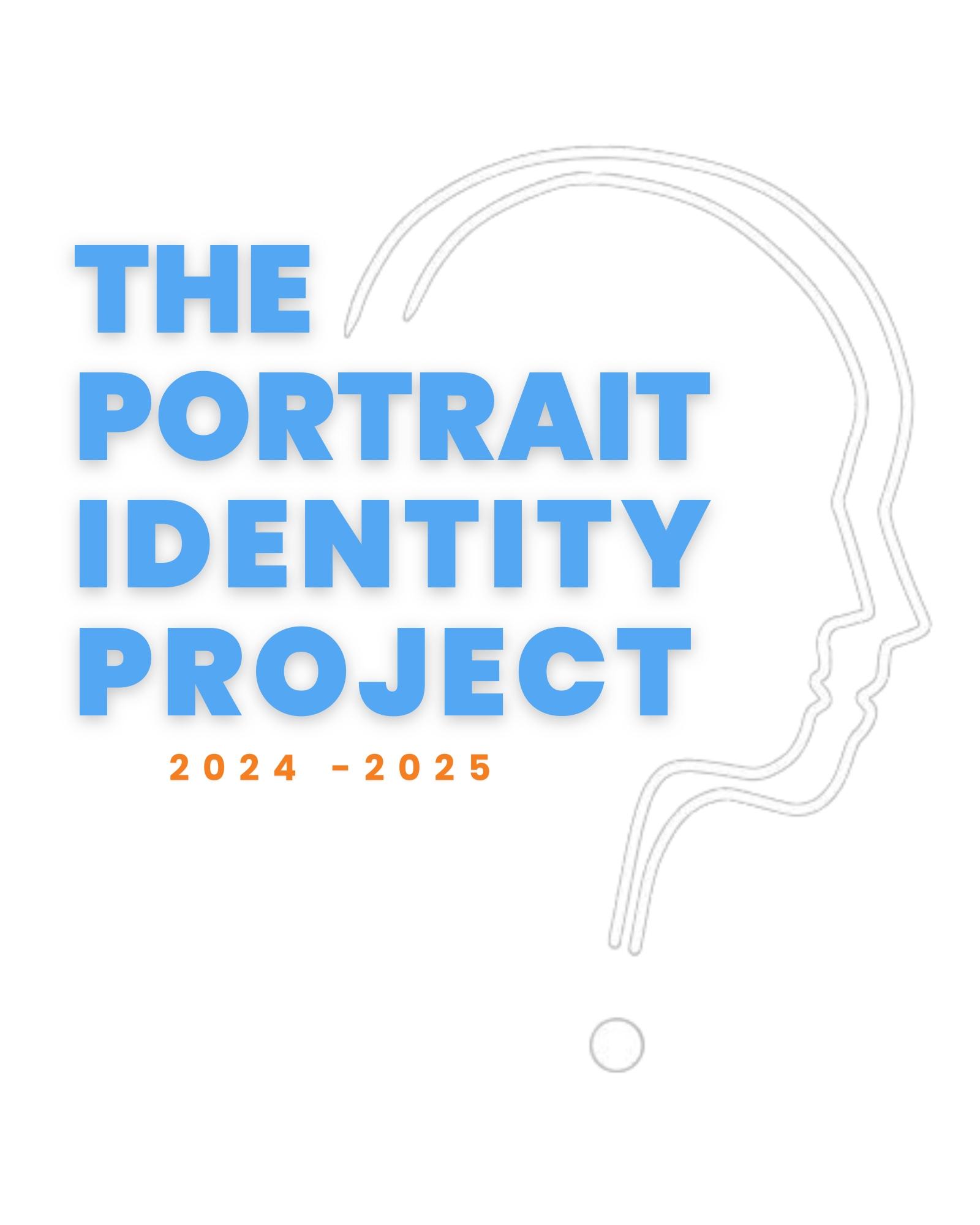

Harper de Andrade
he/him
Idid not grow up Jewish. My conversion journey has meandered through my Duke years like a stream—sometimes flowing steadily, sometimes wandering, but always moving forward. Last fall, my rabbi agreed to sponsor my conversion, though life's chaos has disrupted my imagined timeline. I'm learning there's never truly a fixed schedule for living Jewishly.
Finding what many would call "family" through the Freeman Center has been the most precious part of my Duke experience—a journey from darkness into light. I've aligned with Reconstructionist Judaism, working with a rabbi from this tradition. My observance ebbs and flows; some weeks I keep Shabbat strictly, others I cannot. I've had to accept this doesn't make me a failure. As I've been reminded: "It's way too early in your life and conversion process to take on Jewish guilt.”
Living Jewishly manifests in how I treat others and acknowledge traditions
I embrace my Jewish identity through daily conduct. My freshman professor, Mark Brettler—love him—is an Orthodox Jew raised in Brooklyn. He taught me so much about living Jewishly, though he might not even know it. Once after class, he pulled me aside to apologize for embarrassing me during a presentation. For him, this wasn't just professional courtesy; it was a religious obligation to create a safe space and not embarrass people in front of others. I often think about that lesson and try to implement it in my interactions. Living Jewishly manifests in how I treat others and acknowledge traditions, even when I can't fully observe them—like ordering vegetarian at non-kosher restaurants, honoring dietary laws while making practical choices.
Harper de Andrade
he/him
Being queer and Jewish initially felt contradictory. I thought I needed to shelf my same-gender partnership in observant spaces. Then, I discovered something transformative at the Freeman Center: walking in and seeing a sign that said "Trans Jews Belong Here." That moment showed me these identities don't need to be opposing forces. At the Freeman Center, queer people aren't just tolerated; they're embraced, celebrated, and given leadership roles—even as campus rabbi. This inclusion demonstrates that queerness and Jewishness can coexist and flourish together.
Still, during Chabad's Sinai Scholars during my freshman year, all the men would line up to wrap tefillin after sessions. Unable to participate, I sat apart until Rabbi Nossen noticed me and compassionately placed one box on my arm backward— letting me experience the ritual without violating his rabbinical code. I appreciated his gesture, though it highlighted that I wasn't yet "Jewish enough" in traditional spaces.
Paradoxically, I've been called "the most Jewish of all of us" simply for keeping kosher, while feeling like the least Jewish person present. This illuminated the strange tension between perceived "Jewishness" and rule-following.
My path hasn't been straightforward, but it has been authentically mine. As I leave Duke, I carry not just knowledge of traditions and texts, but the profound understanding that belonging doesn't come from checking boxes—it comes from showing up with your whole self, ready to contribute to a community that spans thousands of years yet remains vibrantly alive today.
Belonging doesn't come from checking boxes—it comes
from showing up with your whole self, ready to contribute to a community that spans thousands of years yet remains vibrantly alive today.

Isabel Epelman
she/her
Growing up, my Jewish identity emerged only on holidays, and the rest of the time, being Russian defined me.
I was born in the United States, but my family's immigrant story is deeply intertwined with their Jewish identity. My mom came when the Soviet Union collapsed, and a big part of that was they were persecuting Jewish people. I never truly understood what this meant until college: They sacrificed everything to come here just to be Jewish.
Before university, Judaism existed at the edges of my life. I never really had a rabbi or Jewish friends—instead, my world was filled with Italian Catholic or Albanian Catholic peers. I never went to Shabbat until arriving on campus.
I've always felt the need to choose to be Russian or Jewish. The environments I'm in seem to dictate which identity comes forward
However, I've become way more involved in the Jewish community since coming to college, exploring traditions and trying to understand Jewish morals more than I did at home. But this journey hasn't been without its complications. I've always felt the need to choose to be Russian or Jewish. The environments I'm in seem to dictate which identity comes forward. At school, I'm Jewish. I don't talk about being Russian, while at home, the reverse was true.
This division extends beyond my personal struggle. When I mention "my dad's from Russia, my mom's from Ukraine," it always elicits a nasty response, though everyone in my house is obviously pro-Ukraine. They left Russia for a reason.
Isabel Epelman
she/her
What I've come to love most about exploring my Jewish identity is discovering that Judaism is so oriented toward giving back. This value resonates deeply with me and has inspired me to help plan the service trip and run for service chair. Service has become central to my identity—something I got from being Jewish. My college experience carries unique weight, knowing my parents worked really hard to get me here. This awareness brings another layer of pride and a little guilt since "I get all these opportunities, and they never did.
Being Jewish in America now feels really weird. With current tensions, I feel I can't really openly be like, 'I'm Jewish.' There's hate towards Jewish people for no reason, often conflating individual identity with government actions.
As I continue navigating college life, I'm learning to embrace both sides of my heritage. The Russian culture that shaped my childhood and the Jewish traditions I'm now exploring aren't competing identities but complementary parts of who I am becoming. It's a journey of honoring my family's past while creating my own future and finding my place in a community that feels increasingly like home.
I've always felt the need to choose to be Russian or Jewish. The environments I'm in seem to dictate which identity comes forward

What parts of your identity have you felt pressured to hide or separate, and how might embracing their coexistence offer a more authentic version of yourself?

Ella Hamer
she/her
Growing up as the only Jewish kid in my high school shaped my religious and cultural identity in ways I couldn't fully appreciate until college. Before coming to Duke, my Jewish community was mostly my family, and our Jewish identity has always been a blend of different traditions.
My dad's family has been in America for a couple of generations, while my mom's family immigrated from Israel when she was 12, so she made sure we celebrated a lot of holidays that get less attention in the US. My mom has so many positive memories of her childhood in Israel, where time stopped when these holidays happened. You had time off work, you had time off school– you could actually celebrate them. My dad, however, is much more aligned with the main holidays in the States and a bit less passionate about Tu Bishvat.
This cultural difference created what I lovingly call a friendly competition between my parents' approaches to Jewish holidays. My paternal grandparents would host us for Passover Seder, but my mom would make sure to sing some of her family's songs. She'd share her Seder books for the rest of the week, offering us another way to look at the holiday.
This contrast extends beyond holiday celebrations. Whereas my dad’s family is religious, my mom's family focuses less on religion and more on celebrating tradition. For example, despite eating everything outside the home, my maternal grandparents keep their house completely kosher, with two sets of plates and cutlery. This model of maintaining cultural practices regardless of religious beliefs has deeply influenced how I approach my own Jewish identity. I feel a responsibility to maintain Jewish traditions because of my awareness of our family’s history of survival. That responsibility is why I prioritize celebrating Jewish holidays and maintaining certain practices, like avoiding pork and shellfish. I want to honor my family and everything they made it through so I could be here as a Jew today.

Sami Jinich
he/him
Growing up, Judaism was embedded in my life through family, not chosen but inherited. It wasn't until I left home that I began to explore what being Jewish meant to me as an independent person. Would I observe Shabbat? Would I want to raise Jewish children? What would that even mean? At Duke, I've discovered the freedom to engage with my faith on my own terms, finding profound comfort in Jewish spaces even among students who share little in common beyond calling themselves Jewish.
There's something special about these connections— subtle cultural and generational threads that bind us together, even when we can't quite name what they are. Humor, a trait that seems to resonate particularly among American Jews, is something I lean into to make these connections. For example, I joke about how my stomach frequently reminds me of my Jewish genetics, and my friends and I laugh about these shared experiences. Music is another bridge. During my gap year, I embraced the vast Jewish musical traditions, finding unexpected joy in song sessions and shared tunes that created powerful sentimental moments of connection.
Subtle cultural and generational threads (that) bind us together, even when we can't quite name what they are.
These shared Jewish experiences have helped me navigate another complex aspect of my identity—the intersection of being Jewish and Mexican-American. Being white and Mexican-American already confuses some people, and when I add being Jewish to the mix, it often leads to interesting reactions. The truth is more nuanced than simply declaring that these identities can seamlessly coexist. While I relate to many aspects of being Mexican, I acknowledge that my experience differs significantly from the typical Mexican immigrant narrative. My Jewish family in Mexico has remained somewhat insular from mainstream Mexican culture.
Sami Jinich
he/him
My younger cousin recently told me that in their Jewish school, they learn more Israeli history than Mexican history. Simultaneously, the foods we eat at home, the politics we discuss, and the trips we take to visit family are very much Mexican. When you're a product of different ethnicities, cultures, and languages, you create something that's both a blend of your heritage and entirely unique - neither wholly one thing nor another, but something new altogether. This complexity has extended into my political identity as well.
As someone deeply involved in progressive initiatives while maintaining a strong connection to Israel, I've encountered what some perceive as an irreconcilable contradiction. However, I've come to believe that true support means being willing to criticize what you love. I feel a responsibility to question problematic aspects of Israeli governance and how Jews engage with Israel while maintaining my commitment to Israel's success. This approach has resonated with younger students who previously felt they had to choose between their progressive values and their connection to Israel.
I've come to believe that true support means being willing to criticize what you love.
At Duke, I've integrated my Jewish identity with my broader social life, taking a different approach from those who keep their religious practice separate. Shabbat has become a space where I bring Jewish and non-Jewish friends together, appreciating Jewish Life at Duke's welcoming environment. There have been moments when I've felt perhaps "not Jewish enough," particularly during moments in a gap year in Jerusalem, quarantining with more observant students from Jewish high schools. Yet I've learned that being less observant doesn't make me less Jewish, and most Jewish communities welcome questions and eagerly share their traditions.
Sami Jinich he/him
Recent events, particularly since October 7th, have made me more aware of how Judaism has become increasingly politicized. While I sometimes wish we could focus solely on spirituality and religion without the weight of global politics, I've come to accept that these conversations about world Jewry are inevitably part of our contemporary Jewish experience. What I've learned through all of this is that identity isn't something you simply inherit or choose— it's something you actively shape and reshape throughout your life. I'm no longer searching for perfect reconciliation between all my identities. Instead, I'm embracing the complexity of being exactly who I am: a Jewish, Mexican-American man who finds strength in the very questions and contradictions that once made me uncertain.
I'm no longer searching for perfect reconciliation between all my identities. Instead, I'm embracing the complexity of being exactly who I am: a Jewish, Mexican-American man who finds strength in the very questions and contradictions that once made me uncertain.
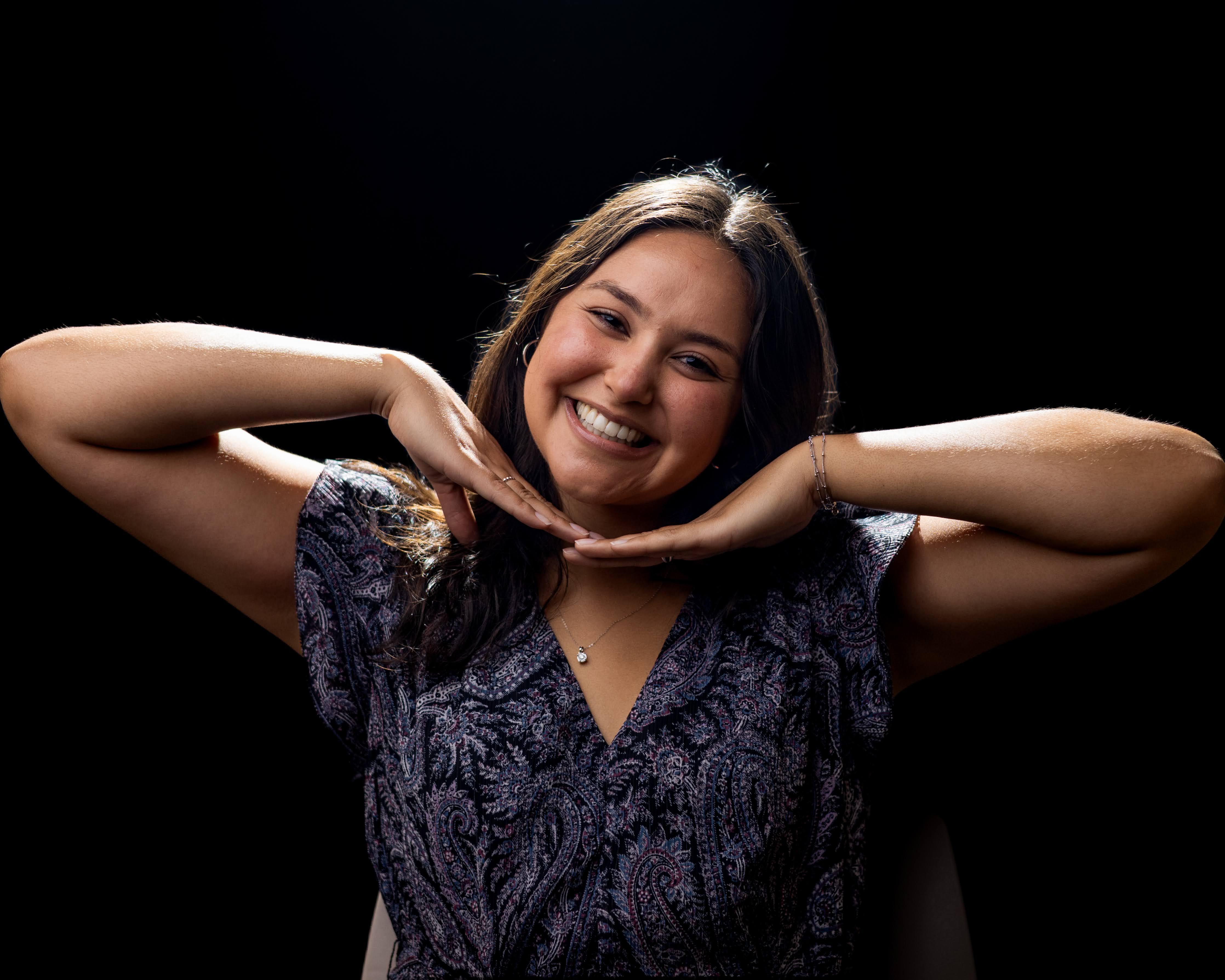
Reena Kagan
She/her
Two checkboxes from the college application form stared back at me: 'Asian' and 'white.' With a click on each, I completed yet another form, but while technically accurate, these boxes didn't tell my whole story. As the daughter of an Indian mother and a white Jewish father, I've always existed in between— proudly biracial, yet predominantly shaped by my Ashkenazi Jewish upbringing and the privileges of my white experience - an uncomfortable truth about our society, but one I can't deny.
The disconnect I feel from my Indian heritage carries a particular weight. My Jewish grandparents were born here, children of immigrants who established American roots, while my Indian grandparents made the journey themselves, carrying their dreams across oceans. Yet many of their cultural traditions were set aside in their quest to build a new life and embrace being American.
By the time my mother was raised, our family had few connections to our Indian heritage. This absence of Indian cultural connections made me especially grateful for the rich traditions I discovered in Judaism, such as the Jewish community, joy in family gatherings and celebrations, singing prayers at Hebrew school, and the immense pride and gratitude I felt during my bat mitzvah. These Jewish practices became anchors, inspiring me to actively preserve them in my own life while also spurring a desire to someday reconnect with my Indian heritage.
Two checkboxes from the college application form stared back at me: 'Asian' and 'white.' With a click on each, I completed yet another form, but while technically accurate, these boxes didn't tell my whole story.
Reena Kagan
She/her
My exploration of identity took on new dimensions when I first learned about matrilineal descent in Judaism. I remember having what I now call my "little crisis moment," asking my parents, "Well, am I actually Jewish?" Their response shaped my understanding of identity in ways that still resonate: "We've raised you Jewish," they said, "and if you want to identify as Jewish, you can be Jewish." This simple affirmation was profoundly empowering.
Coming to Duke brought new challenges to this understanding. I found myself in a different Jewish landscape than my reform synagogue back home, where Judaism had been just one piece of people's lives rather than central to their identity. Suddenly, I was surrounded by peers who had attended Jewish Day School and been deeply involved in their Jewish communities. I felt a familiar insecurity creeping in - was I "Jewish enough"? But the warmth of Duke's Jewish community offered a powerful counter-narrative: Coming to Duke brought new challenges to this understanding. I found myself in a different Jewish landscape than my reform synagogue back home, where Judaism had been just one piece of people's lives rather than central to their identity. Suddenly, I was surrounded by peers who had attended Jewish Day School and been deeply involved in their Jewish communities. I felt a familiar insecurity creeping in - was I "Jewish enough"? But the warmth of Duke's Jewish community offered a powerful counter-narrative: "Jewish in any form is Jewish" and "Come as you are." These messages helped me move beyond questioning my authenticity to simply embracing my Jewish identity. I've loved making Shabbat dinners a Friday night tradition, attending many Passover seders, Sunday Bagel Brunches at the Freeman Center, embracing the silliness of Purim, and learning more about Judaism in the context of Israel in a Kol Yisrael JLF seminar.
"Jewish in any form is Jewish"
Reena Kagan
She/her
My relationship with Judaism continues to evolve, especially as I navigate the intersection of faith and academic life. At Duke, where we're trained to question everything and ground our thinking in evidence, I sometimes struggle to reconcile my religious identity with this analytical mindset. Yet my experience researching in Honduras last summer opened my eyes to new possibilities. Living with a Catholic family and witnessing how their faith provided them peace and perspective helped me see different ways religion could enrich life beyond the strictly rational.
What I've come to understand is that Judaism remains core to my identity, guiding my choices and connections, even when I'm not actively practicing. It's not about checking off boxes of observance or measuring up to others' standards - it's about recognizing that this heritage is woven into who I am, shaping my values and my way of seeing the world. Judaism remains an essential part of my story, one that I continue to write on my own terms.
It's not about checking off boxes of observance or measuring up to others' standards - it's about recognizing that this heritage is woven into who I am, shaping my values and way of seeing the world.
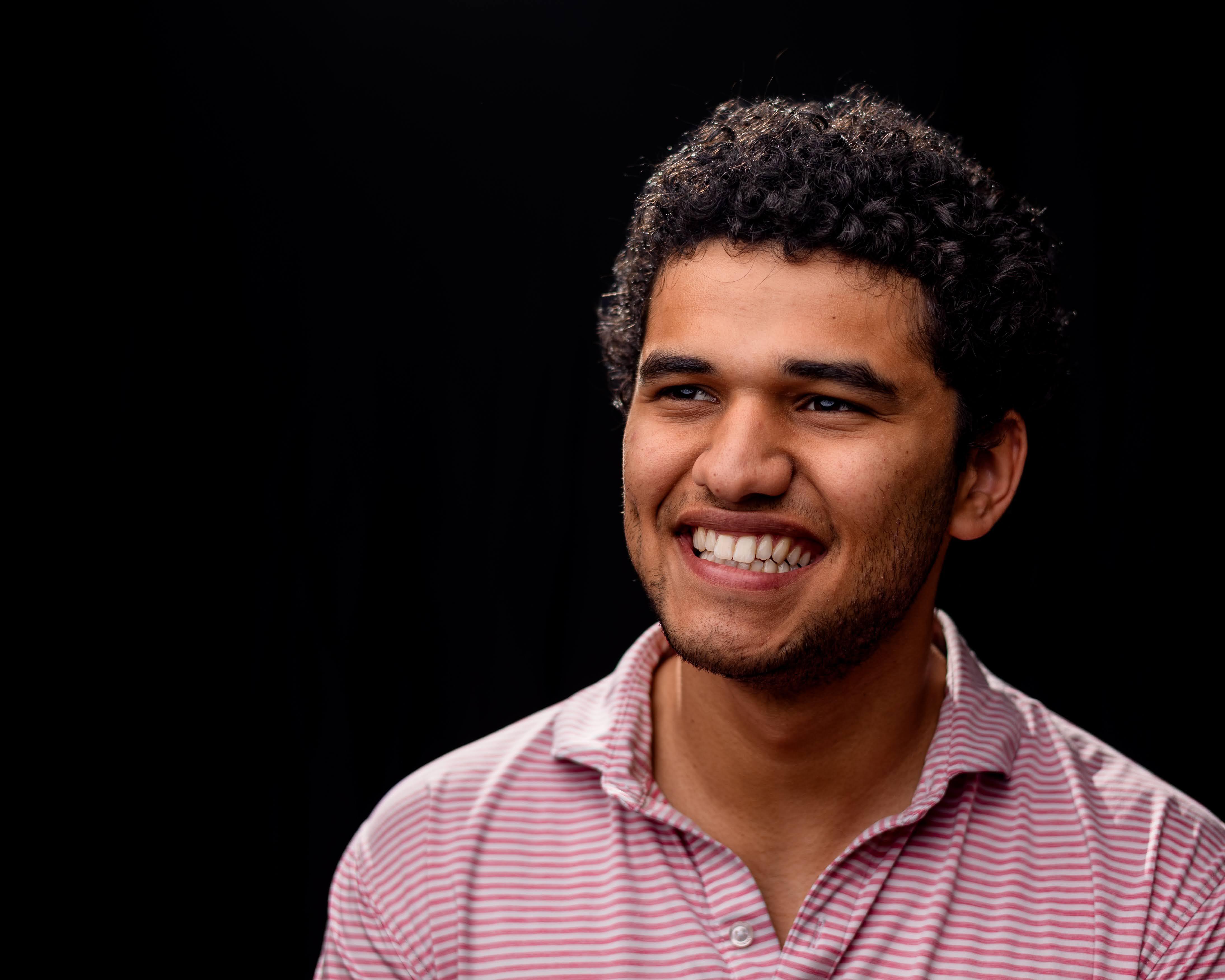
Ethan Kothavale
He/him
Growing up, I didn't have much of a personal connection with Judaism. Like many kids, I was reluctant about religious education. It was something my parents forced me to do, and I wasn't the biggest fan of it. Despite this initial reluctance, my bar mitzvah marked a significant milestone in my life. However, shortly after, I got sick and was kind of incapacitated for a couple of years with Lyme disease, so I didn't really interact that much with Judaism during that time.
It wasn't until high school that I found my way back to the Jewish community, but through an unexpected path. I started working at my temple on the tech team, handling audio-visual responsibilities. This role helped me feel like an integral part of the community because what we did was pretty important work for services. Through this practical involvement, I developed into somebody who cares more about Judaism.
Judaism has instilled certain values that guide my approach to life. One key value revolves around learning and treating everything in life as a teacher, as something to learn from.
Today, my relationship with Judaism looks different than it did in my childhood. Since coming to college, I've embraced my Jewish identity through attending Jewish events, like celebrating the holidays, going to Shabbat dinners, and participating in Jewish life programming.
My connection with Judaism is centered more on the culture and the community rather than religious belief. I don't necessarily believe in God as described in the Torah. I consider myself a scientific person, and I find some discrepancies between the two descriptions of the world. College has given me opportunities to discuss Judaism with people of different faiths, particularly Christians who have strong religious convictions. I actually admire their faith and sometimes wish I shared their certainty; there's something beautiful about the powerful sense of love and meaning their beliefs provide.
Ethan Kothavale
He/him
Despite our different perspectives, these conversations have been enlightening. I've found real value in comparing our viewpoints, and I genuinely enjoy sharing how my experiences and perspective as a Jew influence how I understand the world.
My biracial background further shapes the complexity of my Jewish identity. My mom is Ashkenazi Jewish, and my dad is Indian. Growing up between these two cultures, I've often felt trapped in the middle and sometimes not cultural enough to relate to either side. And, although no one was ever unwelcoming to me because of how I looked, I was definitely one of the five non-white people in my synagogue. As a child, this visible difference made me question if I truly belonged. But nowadays, I really don't do that anymore. I'm completely happy to be who I am.
Judaism has instilled certain values that guide my approach to life. One key value revolves around learning and treating everything in life as a teacher, as something to learn from. This perspective was either explicitly or implicitly given to me during my Jewish education. Another characteristic I've absorbed from Jewish tradition is the practice of questioning. This inquisitive approach extends beyond religious matters— I generally question things in life.
Today, I feel a lot more comfortable about being Jewish with Indian people and being Indian with Jewish people. My journey with Judaism continues to evolve
Today, I feel a lot more comfortable about being Jewish with Indian people and being Indian with Jewish people. My journey with Judaism continues to evolve. From a reluctant Hebrew school student to someone who values Jewish community and tradition, I've found my own authentic way to embrace this part of my heritage while honoring the complexity of my multi-faceted identity. I continue to navigate my place in the Jewish community and the wider world through questioning, learning, and openness—values I've drawn from Judaism itself.

When have you discovered meaning in something you initially resisted?
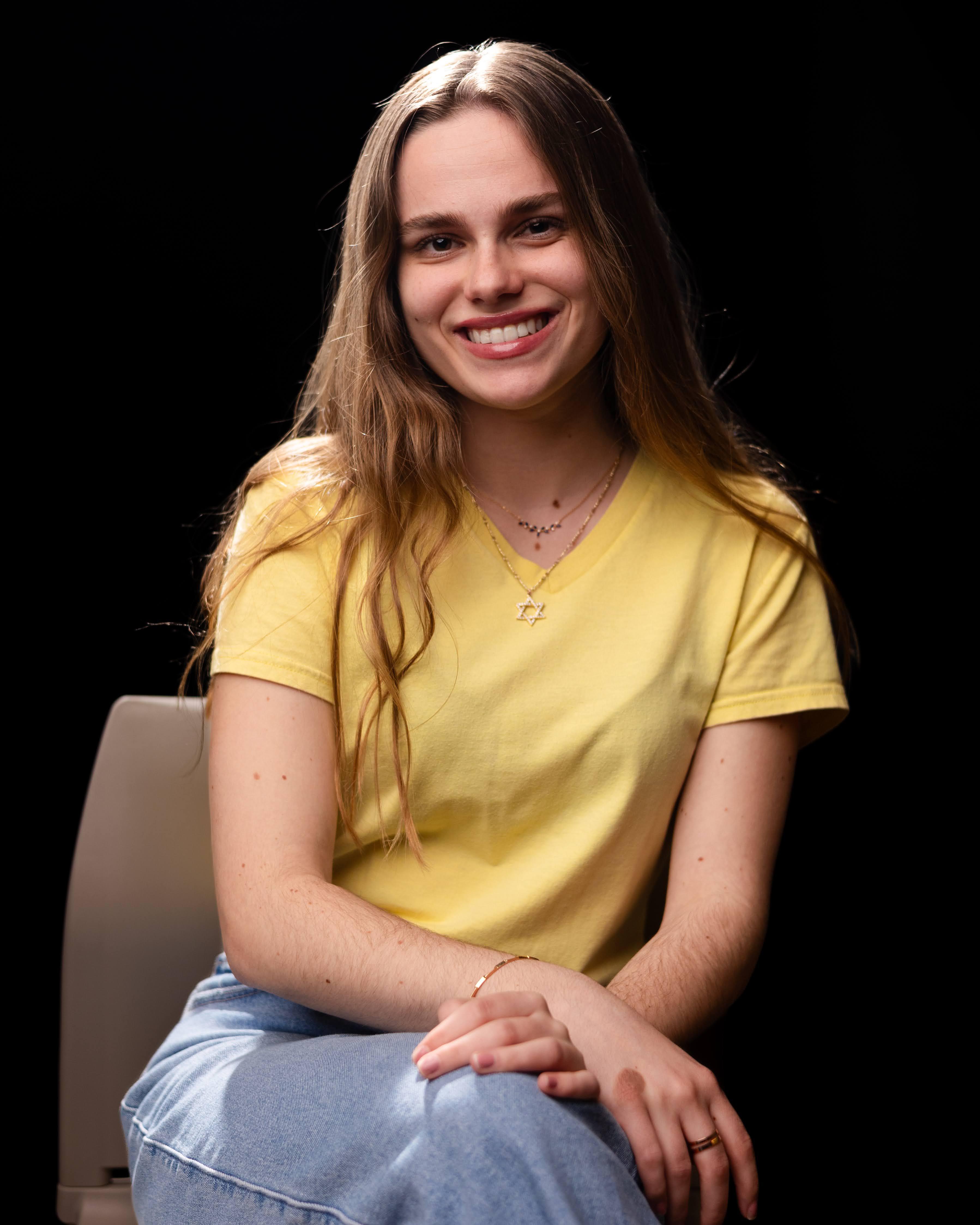
Hanna Lavi
she/her
In Oklahoma, my family stood alone—one of the only Jewish households in our town for years. To attend Shabbat services meant a half-hour drive, ironically breaking Shabbat just to observe it. Yet those who made this journey created something precious: a community bound by intention rather than convenience.
When I arrived at Duke, everything changed. Services were just a five-minute walk away. Accessibility brought frequency, but I noticed a subtle shift in community dynamics—from people who have the intention of being here to working to bring people into this space. This contrast forced me to question what community truly means.
Early in college, I found myself constantly at Jewish events while simultaneously wondering if I should be exploring everything else the campus offered. At non-Jewish gatherings, something felt missing—I couldn't be 100% authentically myself the way I could at simple events like bagel brunch. The realization hit me: I don't need the resume-long list of social activities. I need things that make me feel authentically myself, confident in my community, and whole.
My identity isn't singular but multifaceted. I'm Jewish, Persian, and Choctaw— intersections that haven't always been easy to navigate. Being Persian Jewish felt natural; I can trace my Persian Jewish identity back to the exile of Babylon. However, reconciling my Jewish and Native American heritage proved challenging. What ultimately bridged these worlds were the parallel histories I discovered. My Jewish grandmother's stories of persecution in Iran—they used to pour boiling water down their backs—echoed the Choctaw histories my other grandparents shared about the maiming of children and the erasing of cultural identity. Both communities responded with remarkable resilience and commitment to protecting their own. It was the same story, different font.
Hanna Lavi
she/her
My physical appearance has added another layer to my identity journey. As a light-skinned, white-passing person in a family where no one else looks like me, I've experienced another layer of complexity. At airports, my family members received full pat-downs while I breezed through security. These experiences made me question: Do I really experience this culture differently than they do, or do I belong in it, more or less? I've experienced this disconnect more with my Persian identity than with my Jewish one. This visible disconnect mirrors a broader question I often contemplate.
What does it mean to be a young Jewish adult in America today? You could focus on the challenges—campus tensions, assumptions about your name or religious symbols, the barriers that make life different. These realities are very true and very prevalent. But I choose another perspective. My life has been made so much better by my Jewish experience. Every day, I embrace this identity because if I'm wrong about everything, I know that being Jewish has made me a better person and has made me enjoy life more.
I embrace my Judaism by extending it to others—being able to take someone's hand who lacks connection and saying, your experience could look different from mine, but at the very least, you're gonna feel cherished... you're gonna feel like you belong here. Being Jewish isn't a checkbox but a living inheritance that can be one of the most rewarding special experiences. If you choose. And I choose this identity every day.
I embrace my Judaism by extending it to others—being able to take someone's hand who lacks connection and saying, your experience could look different from mine, but at the very least, you're gonna feel cherished.
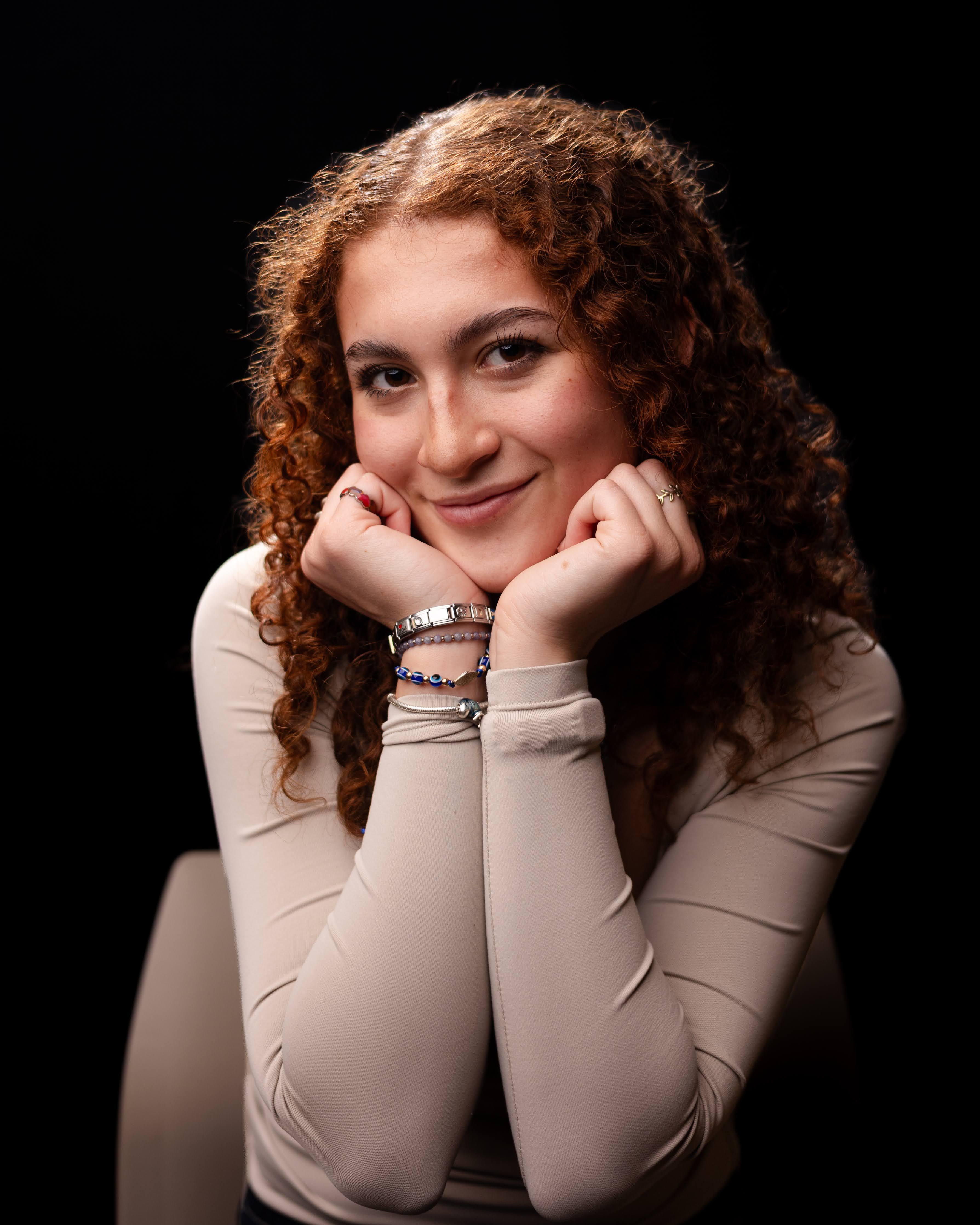
Danielle Lipp
she/her
PAttending college in my hometown of Durham gave me a unique lens: same city, yet a completely different experience. Growing up, I realized I was the only person of color in my Hebrew school class, and simultaneously the only Jewish person in my regular class. That moment crystallized a duality I'd navigate throughout my life. Standing at this intersection, I wondered: How do I make sense of this?
My identity is uniquely Zimbabwean Jewish—the only other person I know with this exact combination is my sister. There's comfort in having at least one person who understands this intersection completely.
Being different gave me opportunities to educate others. My dad would visit my elementary school to teach about Hanukkah, making dreidels from marshmallows as I shared my culture with curious classmates. It felt important, especially in the South with smaller Jewish communities, to show that not all Jewish people are white. Still, sometimes I felt lonely, wondering if anyone was exactly like me.
By senior year, I decided it was time to create the community I was missing, so I started a Jewish Student Union—one of my best decisions ever. I discovered classmates I never knew were Jewish, who would say, "I love this space. I've never had anything like this before." Now my sister runs the club. It's fulfilling to know I created something lasting where Jewish students could find each other.
Coming to Duke was revolutionary. Suddenly, there were many Jewish people around me—a reality I could barely imagine after my childhood. When October 7th happened during my freshman year, having a strong Jewish community was invaluable. For the first time, I was surrounded by peers who understood exactly what I was experiencing.
Danielle Lipp
she/her
My identity as a Zimbabwean Jewish person has been shaped by both sides of my family. My mom is mixed. She grew up in a segregated Zimbabwe where she wasn't allowed to go to school with the white kids or the black kids, so she went to a school for colored children, which is already a complex identity in and of itself. And my dad grew up Ashkenazi Jewish in the northeast, 99.9% Ashkenazi Jewish. When my mom converted to Judaism, she didn't just adopt my dad's traditions. She was adamant: "I'm not being Ashkenazi. I'm going to be Sephardi." Our home beautifully blends these traditions, surprising friends who visit for holidays.
The most challenging aspect has been reconciling my self-perception with others' views. At Duke, I had validating moments when other students of color would approach me: "I know you're mixed. What are you mixed with?" Such questions weren't offensive—they were validating. They saw me for who I am.
The internal battle is feeling deeply connected to multiple identities, while others don't see them in me.
I've heard "Oh, you don't look Jewish" countless times. The internal battle is feeling deeply connected to multiple identities, while others don't see them in me. Over time, I've found peace with this dissonance. Not everyone will recognize my identities at first glance, and that's okay. What matters is my own embrace of who I am.
My identity as a Zimbabwean Jewish person has been shaped by both sides of my family. My mom is mixed. She grew up in a segregated Zimbabwe where she wasn't allowed to go to school with the white kids or the black kids, so she went to a school for colored children, which is already a complex identity in and of itself. And my dad grew up Ashkenazi Jewish in the northeast, 99.9% Ashkenazi Jewish. When my mom converted to Judaism, she didn't just adopt my dad's traditions. She was adamant: "I'm not being Ashkenazi. I'm going to be Sephardi." Our home beautifully blends these traditions, surprising friends who visit for holidays.
Danielle Lipp she/her
The most challenging aspect has been reconciling my self-perception with others' views. At Duke, I had validating moments when other students of color would approach me: "I know you're mixed. What are you mixed with?" Such questions weren't offensive—they were validating. They saw me for who I am.
I've heard "Oh, you don't look Jewish" countless times. The internal battle is feeling deeply connected to multiple identities, while others don't see them in me. Over time, I've found peace with this dissonance. Not everyone will recognize my identities at first glance, and that's okay. What matters is my own embrace of who I am.
There have been isolating moments, like when someone laughed in class, as I mentioned, attending an event with an Ethiopian Israeli Nova survivor. Something in my stomach dropped, but I wasn't ashamed. I explained that I wanted to understand the experience of being both Black and Jewish in Israel. Though I felt like the only Jew in the world in that moment, I remained proud.
Judaism fundamentally shapes how I approach my other identities. There's something so fundamental in Judaism about caring for people, but also bringing light to dark situations and finding peace and community within difficult or complex things. I especially value the space Judaism creates for questions—something my mom discovered when she converted from Christianity, where she had felt stifled and like she could never ask questions.
That's why I embrace questions about my identity. I want people to understand, and sometimes I'm the only one who can help them understand my particular intersection of identities. I love it when people ask me about who I am and my identity. I find comfort in unexpected connections: learning about a Jewish tribe in Zimbabwe, meeting other mixed-race Jews, and Southern Jews. These connections are powerful because we share the experience of not knowing where we fit, yet seeing each other.
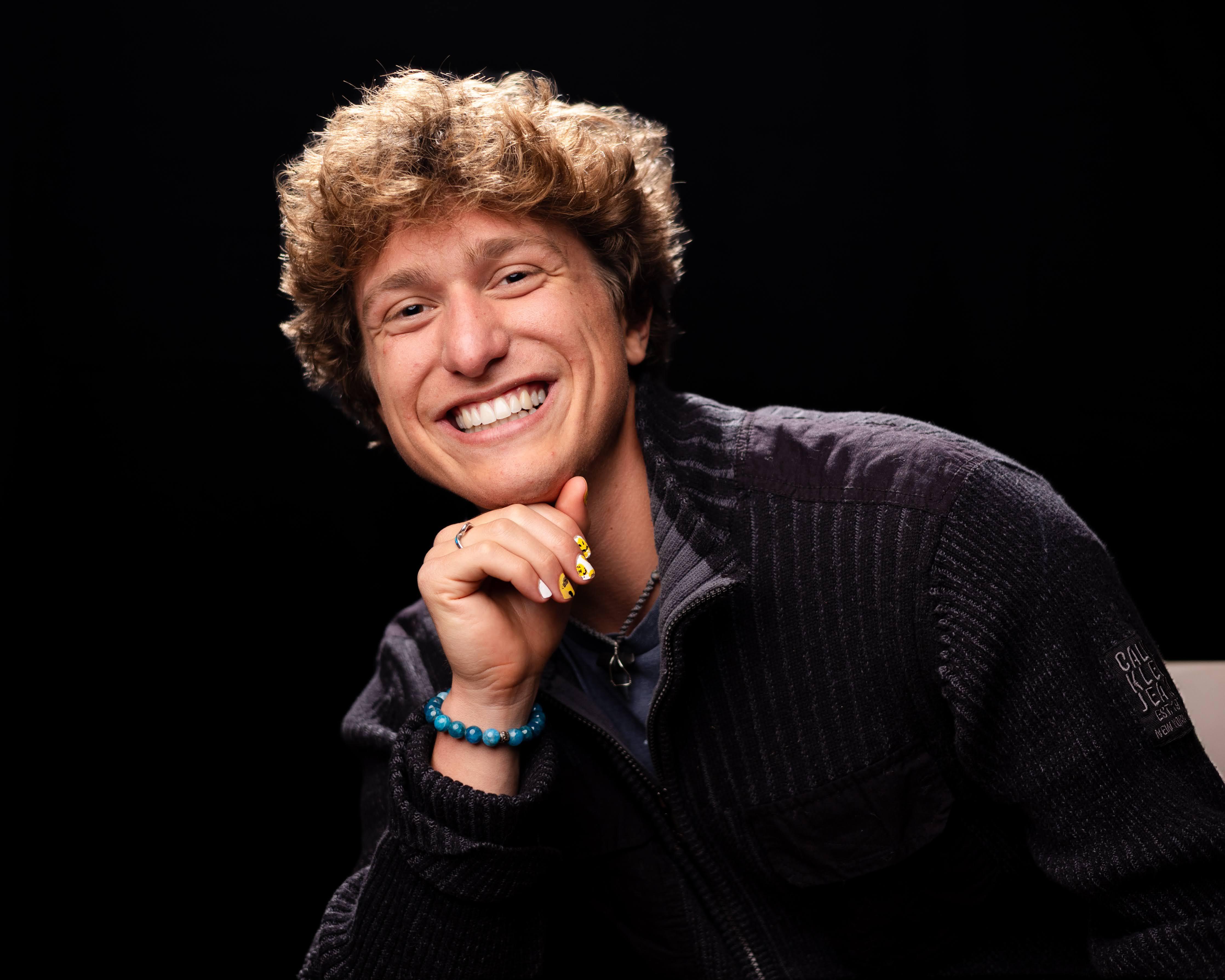
Gabe Mirman
he/him
Standing at the bimah for my bar mitzvah at thirteen, I did pretty much the entire service myself—a moment that instilled a lasting confidence. This early sense of responsibility and confidence became central to my identity as I moved through adolescence. While my Bar Mitzvah marked a moment of connection within a supportive community, it wasn't until years later that I truly understood the value of that community. As I ventured beyond familiar surroundings in college, the absence of a Jewish connection would teach me its true worth.
During a semester abroad, I found myself in the north of Norway for the High Holidays, where there was no Jew within hundreds of miles. I felt an isolation that was really upsetting, as the only Jewish presence I encountered in some European locations was somber memorials honoring the Jews who they sent to concentration camps.
Returning to Duke's vibrant Jewish community felt like coming home. I deeply value having the ability to connect with the Jewish community on campus—a place where you can really celebrate and appreciate your Jewish identity without fear. This contrast illuminated a central Jewish teaching: we're stronger together than we are separated.
This sense of belonging within the Jewish community has also helped me navigate the beautiful complexity of my multiple identities. My Jewish identity doesn't exist in isolation—it intersects with my Latino heritage in ways that create something unique. Rather than feeling torn between worlds, I've discovered rich intersections in this dual identity. At our Passover Seder, I move fluidly between speaking Spanish to my mom and speaking Hebrew at the table, creating moments where traditions beautifully merge. I've found community in Jew-Tinos spaces where this specific cultural fusion is celebrated. While sometimes it can feel like you don't fully fit into a community because you have other identities, I've learned that this uniqueness should be celebrated and honored.
Gabe Mirman
he/him
To embrace my Jewish identity, I actively seek out family stories, attend Shabbat services, and engage with fellow Jewish students. I believe that understanding our past shapes how we navigate our future—if we lose that knowledge that's been passed down for generations, we suffer a big loss for the community.
In navigating these intersecting identities, I've discovered that identity itself is a really interesting thing because it means different things to different people. It's as much what we make of it as it is part of us. With this understanding, I try to prioritize all the different aspects of my life and go deeper into them, recognizing that there are a lot of things we can learn from different cultures and traditions.
At our Passover Seder, I move fluidly between speaking Spanish to my mom and speaking Hebrew at the table, creating moments where traditions beautifully merge.

What have you only truly appreciated after experiencing its absence, and how has that realization shaped who you are today?
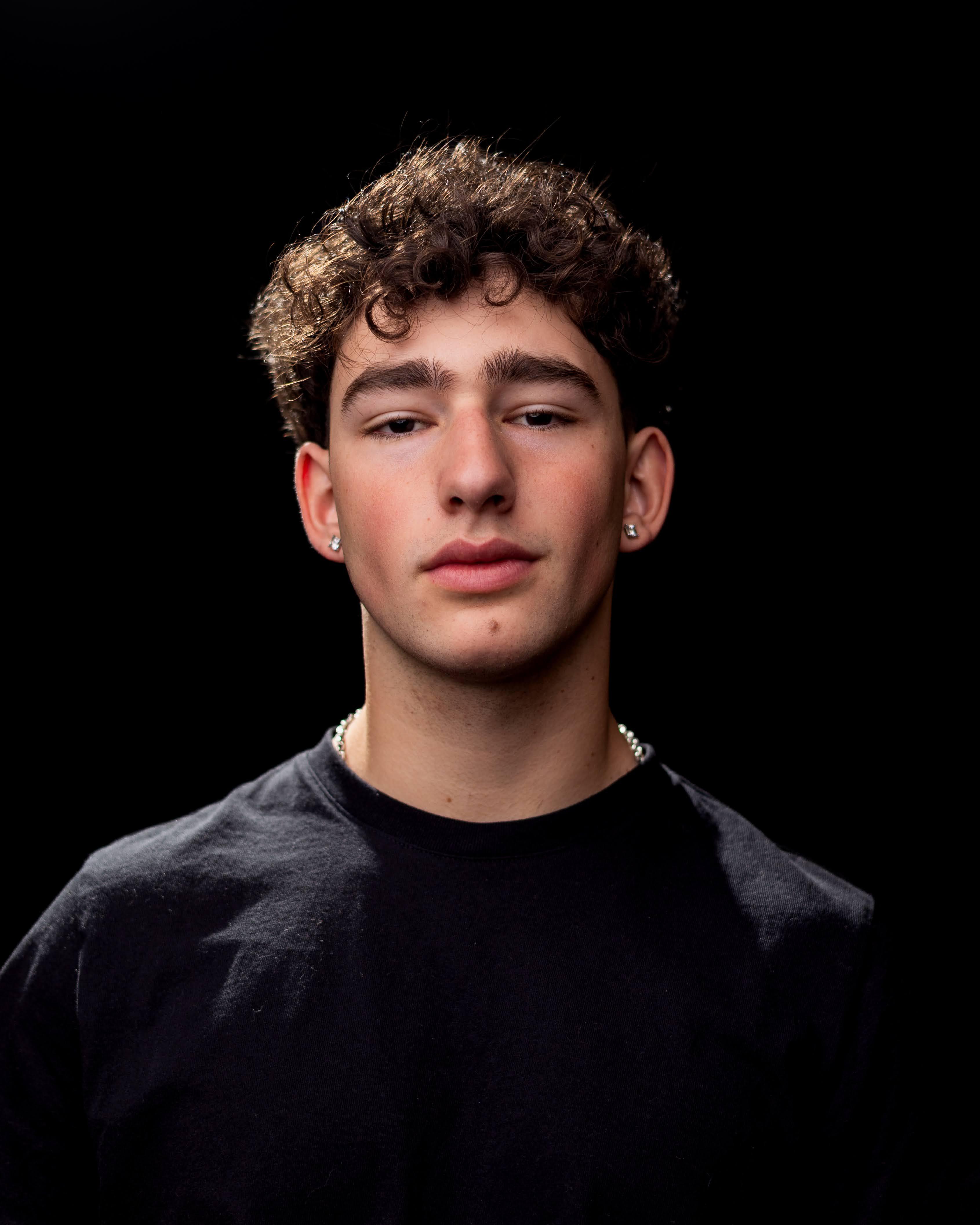
Akiva Mosse
he/him
Growing up Jewish in LA meant I was just another kid in the community. At Duke, though, I became an unexpected ambassador for my entire faith.
I'm on the football team, and a lot of people have never met a Jewish person before. This representation wasn't something I sought; for me, it's such an honor to answer questions and represent Jewish people. Despite not being the star player scoring touchdowns, I find purpose in wearing my Judaism proudly. This pride has only strengthened when facing campus antisemitism.
The questions come constantly, born from curiosity or misconceptions rather than ill intent – questions like 'Why are all Jews so rich?' or 'Why is Israel killing all the Gazans?' These moments provide opportunities to educate others about my culture and correct stereotypes they might otherwise never examine. From my experience, most people at Duke are genuinely open-minded and willing to learn about different perspectives.
Thankfully, Duke has a strong Jewish community, a welcoming one that reinforces what I now understand as my faith's essence: Judaism is, above all else, about community and values. These values guide me daily. Judaism is like a voice in the back of my head that tells me to help someone in need, to pick up that piece of trash. The things you do when nobody's watching—that's what Judaism teaches you. Most importantly, I've realized Judaism isn't about how much Torah you read or if you keep kosher... It's a community, a set of values. This perspective shapes how I interact with others: If you're Jewish, you're my family.
As antisemitism rises nationally, I share this with younger Jews: It's really important to distinguish between ignorance and hatred. While some genuinely hate you for who you are, a lot of people are just uneducated or indoctrinated. I believe in finding those who are just ignorant and positively representing Judaism to them, making a change instead of fighting back. I think that's important because the only way to make progress and have people move in our favor or broaden their perspective is to understand us better.
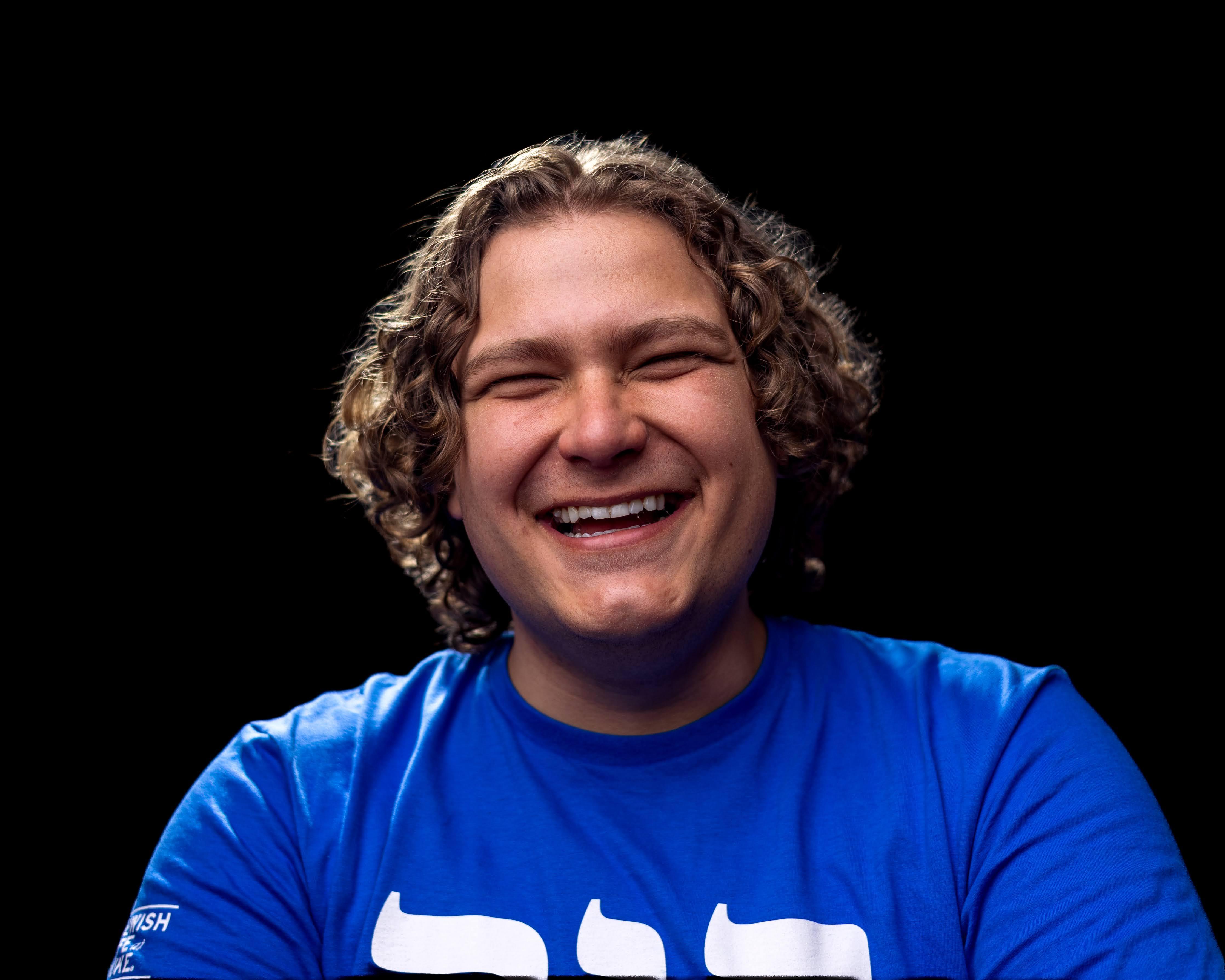
Egor Sergeev
he/him
Iam a Russian Jew who fled the war. Growing up in Russia, I developed a particular view of organized religion informed by Orthodox Christianity, rigid and demanding. The barrier to entry is very high... you have to follow very specific rituals, or it's disrespectful. This environment fostered my secular mindset, so I didn’t approach my life identifying with anything spiritual.. This detachment from religious identity was reinforced by circumstance: my name doesn't sound Jewish, which was actually huge in Russia, where names are a big deal. While this spared me certain difficulties, it also created early questions about belonging and authenticity.
I am a Russian Jew who fled war, carrying the weight of displacement across continents.
Before Duke, I lived briefly in Israel, which was a refreshing experience to live amongst other Jews. Yet, despite this immersion, I remained at the periphery. In Israel, I was seen as a Russian rather than a Jew because I don't look Jewish, and I don't speak Hebrew. This created the first of many identity crossroads I would navigate.
When I arrived at Duke, American Jewish culture felt foreign to me. I attend occasional Shabbats but kept my distance. Then October 7th happened. I was melting down the way everyone was. It was deeply shocking and unsettling for Jews everywhere, no matter the nuances of their background. In that moment of crisis, I reached out to Joyce, whom I'd met during freshman orientation. This connection led me to the Jewish Learning Fellowship (JLF), the turning point in my relationship with Judaism.
JLF challenged my preconceptions about organized religion by focusing not on rigid rituals but on what it means to be Jewish now and how we approach relationships, friendship, and learning as Jews. For the first time, I experienced a Jewish community without a performative obligation. Everyone really cared. No one was there just to be there.
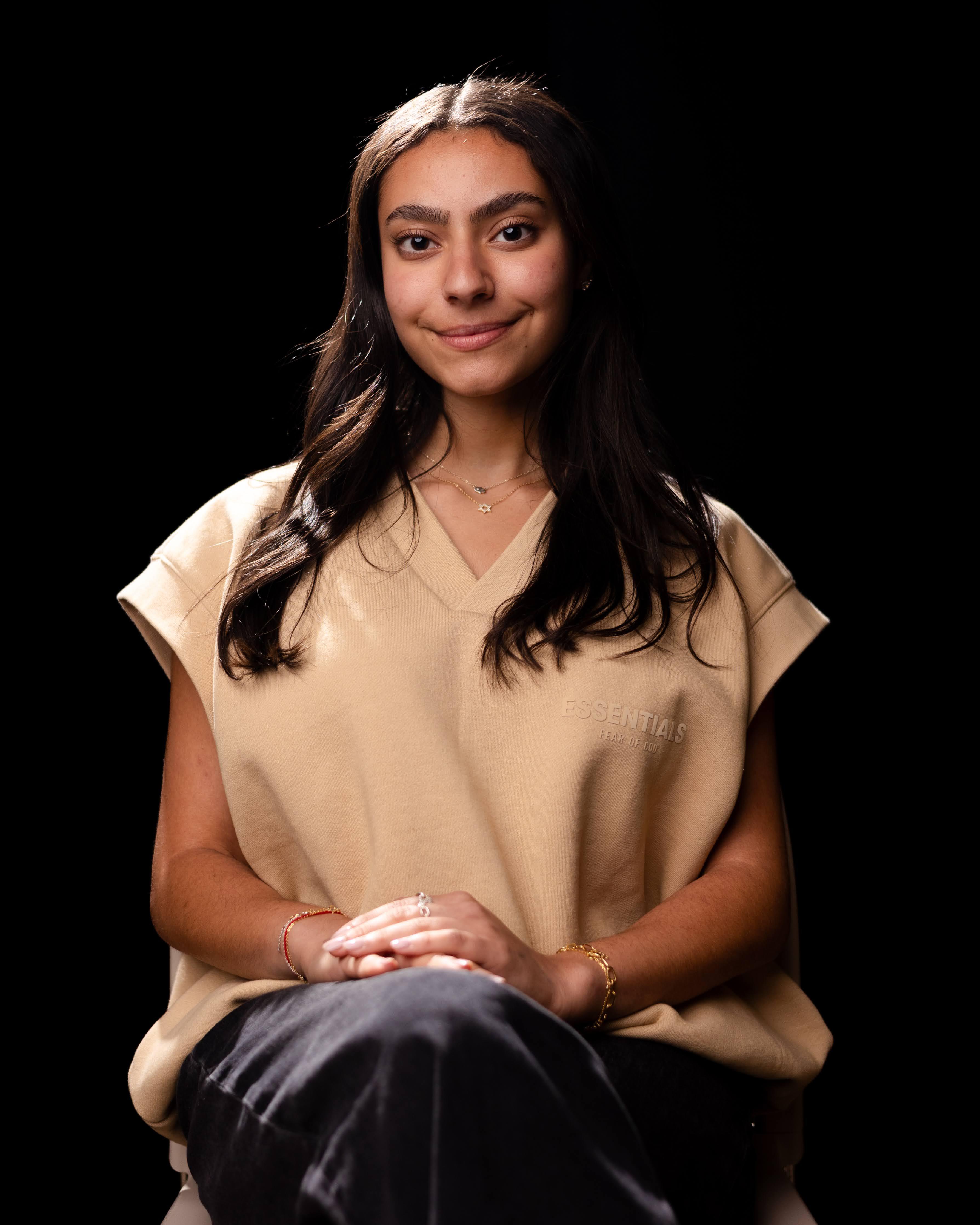
Shira Shasha
she/her
Growing up on New York's Upper East and West Side, Judaism wasn't something I discovered—it was the foundation of my existence. I spent half my days in Hebrew studies and half my day in secular studies at Yeshivat Ramaz Upper School. My observant Israeli mother and Iranian father created a home where Jewish tradition wasn't imposed but breathed.
My family's story embodies Jewish resilience. My mother's family fled Iraq for Israel after exile. My father's journey was more complex. His family fled from Iraq, but instead of going to Israel right away, they went to Iran, where he even attended a Christian school for a little bit because you weren't allowed to be Jewish. Finally, they arrived in Israel. Despite persecution, their Jewish identity only strengthened —a legacy I inherited.
Despite persecution, their Jewish identity only strengthened—a legacy I inherited.
As I matured, I began making my own religious choices. I was very spiritual and still very connected to my Jewish identity. Even when modifying practices like using my phone on Shabbat, I understood that my Jewish identity is still there, and that's not taking away from that. College marked my first step outside the Jewish educational bubble. Surprisingly, this immersion in diversity only deepened my connection. After coming to Duke, they've even been stronger. For the first time, I actively expressed my Jewishness rather than simply existing within it. Now I get to shout it from the rooftops and try to share the traditions, laws in the Torah, and discourse I’ve learned with Jewish and non-Jewish friends, and that's amazing.
Shira Shasha
she/her
October 7th transformed my relationship with my identity again. The tragedy compelled me to be even more vocal about my pride to be Jewish, my pride to be Israeli. These identities—Israeli and Jewish—aren't separate chapters in my story but intertwined narratives.
What I value most about Judaism is its emphasis on intentional practice. Taking things upon yourself is a thing that I love about Judaism... having intentionality (Kavana) is really what Judaism is about. This approach has shaped my entire character. My Jewish identity is interconnected with my morals and my values, and what shapes me to be me. Without my faith, I wouldn't be able to be me.
As I navigate adulthood, I question, discuss with Rabbis, and make informed decisions. For instance, keeping kosher is a commandment in the Torah, but I have the choice not to keep it, and I chose to take it upon myself. This balance between tradition and personal choice defines my Jewish journey—one where questioning strengthens rather than weakens faith.
In sharing my story, I hope to convey the beauty of this heritage that has given me a moral compass and shaped me as an individual—a Jewish identity that remains my foundation no matter where life takes me.
Taking things upon yourself is a thing that I love about Judaism... having intentionality (Kavana) is really what Judaism is about.
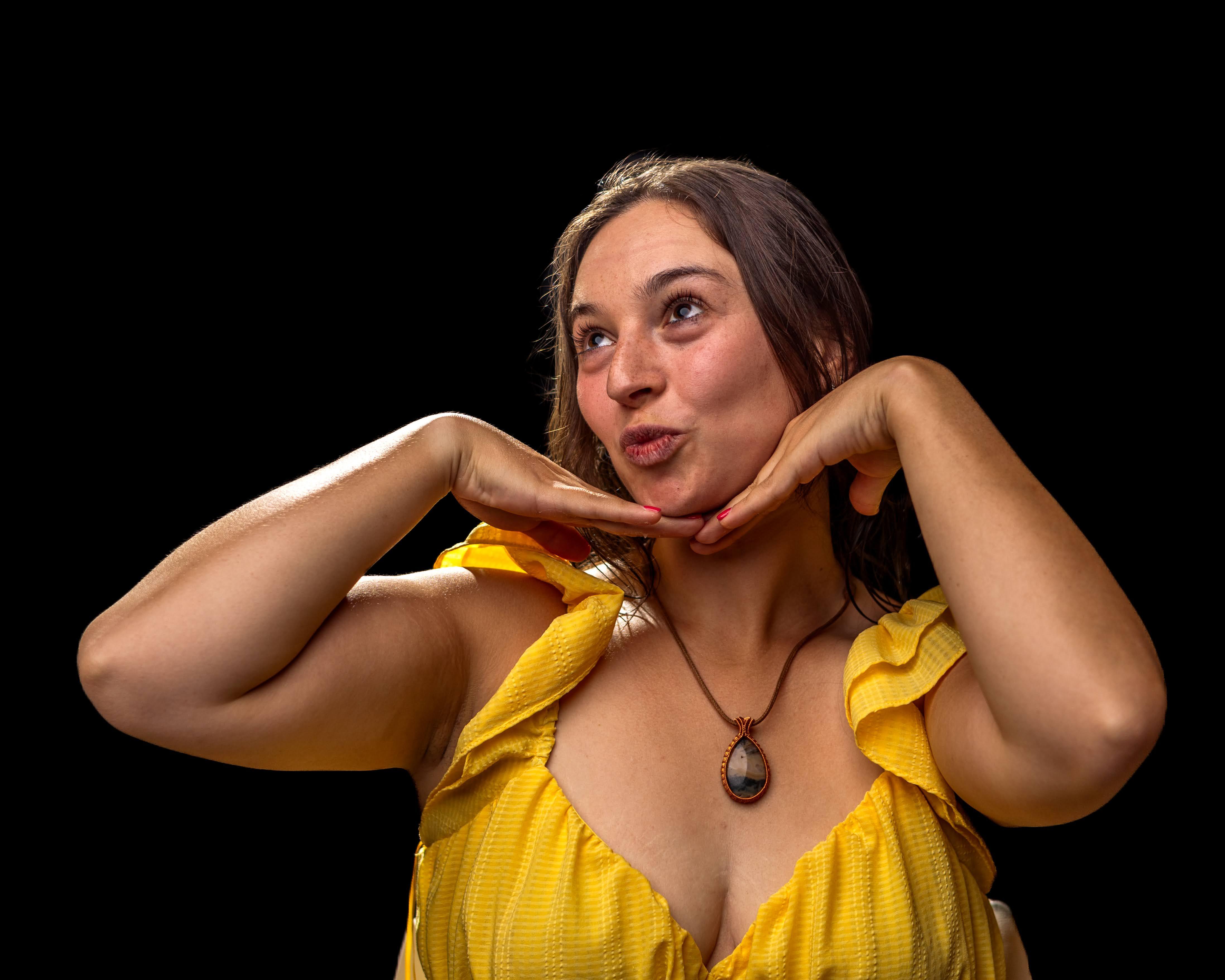
Ari Solomon
she/her
Iwas raised in a pretty religious household. We were conservative, but leaning towards more religious. We would go to services all the time, and it was necessary for me to learn how to read Haftarah and lead Hallel. Judaism was so ingrained in my life - I participated in all the Jewish youth groups, went to Sunday school, and attended a Jewish day school. So, basically, until I was 14, my only friends were Jews. I literally only knew Jews.
This immersion shaped not just my practices but my entire way of thinking. Judaism teaches us a very specific approach: "This is the evidence, this is what you can take from it, what do you take from it?" It's very structured in the way that the Midrash and the Talmud approach knowledge. This kind of thought process is honestly a very Jewish thing to me, and I really latched on to that. My mom, my dad, we all think this way.
Now, one of the ways I incorporate Judaism into my daily life is, honestly, I just talk to my mom a lot. We talk about Judaism all the time.
When I got to college, my understanding of Jewish identity was challenged. At NYU's Hillel, it honestly felt like I wasn't Jewish enough for them, which was weird because I never felt that in my life. I was always the person who could read Hebrew and lead services, but I don't keep kosher or observe all the Shabbos rules. I felt uncomfortable in reform services that played music, and in conservative services, I felt judged. When I transferred to Duke, I found more Judaism here, but I still miss conservative Saturday morning services. Now, one of the ways I incorporate Judaism into my daily life is, honestly, I just talk to my mom a lot. We talk about Judaism all the time.
Ari Solomon
she/her
Meanwhile, I've been navigating what it means to be a religiously engaged Jewish woman. It feels weird being a very Jewishly adept girl. I love wearing my Tallis, Kipa, and wrapping tefillin. Sometimes, being a girl in those settings is hard when they say, "Girls don't have to do this" or "Girls can't do that." I feel uncomfortable in spaces where I can't pray with my father - I'm not there to be with God, I'm there with my dad. My Judaism is very rooted in my dad.
Being an athlete adds another layer of complexity because competitions are on Saturdays, so I can't attend services. Despite these tensions between my different identities, I can't be me without being Jewish. Anything else that I do is in addition to being Jewish. Judaism is woven into the fabric of who I am because I was raised with these traditions intertwined with everything.
Through all these experiences, I've come to cherish specific aspects of Judaism most deeply. One of my favorite things is Shiva. That sounds weird, but I think it's the most beautiful thing because we mourn as a community and take care of each other. My family is very strict on mourning rules because my brother passed away when I was eight, and I've lost two grandfathers since then. If anything, I would never break tradition on mourning - I'm always going to do Shiva, have a wooden coffin, and be wrapped in my Tallis.
This journey has led me to my own understanding of what Judaism means. I am a very particular Jew, but Judaism can be whatever people make it to be. I don't believe in God, but I believe in the traditions, the family, and what we do as a community. When people ask what Judaism believes in, I always say, "the ability to question." The Torah doesn't give you a straight answer. Even in the Talmud, the rabbis don't agree - "You have two Jews and three opinions." I think Judaism, at its heart, believes in questioning and in the community we build together. This is what remains constant for me, even as everything else changes.
I think it's the most beautiful thing because we mourn as a community and take care of each other.
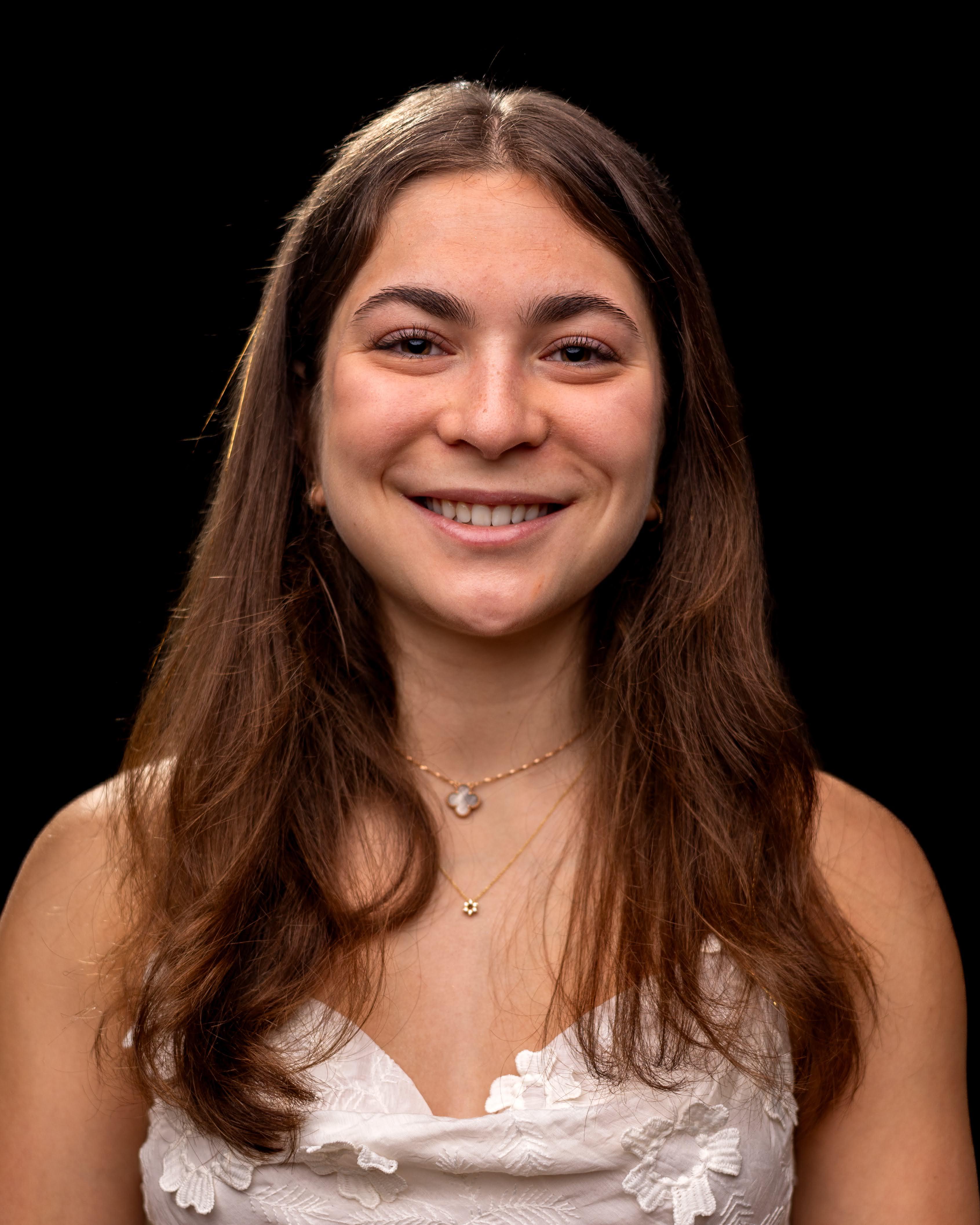
Lilly Weisz
she/her
Coming to Duke transformed my relationship with Judaism. For the first time, I found myself in a community of people who were also my age and who were interested and engaged in being Jewish, not just in a religious way but in a community way.
Growing up, my family celebrated major holidays, and I had a bat mitzvah, as did all my siblings, and even though we didn’t do many traditional things like keeping kosher, Jewish values became the compass guiding my interactions with the world —I just didn't realize it until college. It took a philosophy major friend analyzing our conversations to help me see it. She pointed out how I resist seeing the world in binaries of black and white or good and evil, focusing instead on our responsibility to improve ourselves and repair the world, which seems to be deeply rooted in my religion and the values of Judaism. And I think that really resonates with me. Programs like the Jewish Learning Fellowship further deepened my understanding of what values I really like about Judaism that I can apply in my own life. Now, these values shape how I view the world and how I operate in the world. They drive me to be someone who's doing more than just working for myself, but to work for the community and make the world a better place.
I resist seeing the world in binaries of black and white or good and evil, focusing instead on our responsibility to improve ourselves and repair the world, seems to be deeply rooted in my religion and the values of Judaism.
Lilly Weisz
she/her
While I consider myself religious and believe in the importance of ritual observance, in trying to live up to my Jewish values, I think it's important to prioritize my conduct and mindset. Also, while I appreciate the history and value of practices like shomer negiach and shomer shabbos, they don't fit with how I personally choose to live my life. What matters most to me is living within a Jewish mindset about how to be a part of the world and how to conduct my relationships. This mindset— focused on learning, growth, community, and tikkun olam—has become the cornerstone of my identity.
I'm constantly aware that I'm Jewish, though my practice aligns more with Conservative or Reform traditions rather than Orthodox observance. In discovering my own approach, I've learned there's no single right way to be Jewish. My journey has been about finding elements of this rich tradition that resonate with my values and incorporating them authentically into my life.
At Duke, surrounded by peers on similar journeys, I continue to explore what it means to live a Jewish life on my own terms—one that honors tradition while embracing the complexity of modern identity.

When did you discover that your personal approach to something meaningful differed from traditional expectations, and how did you create your own authentic path?
A Note from the Photographer and Creator
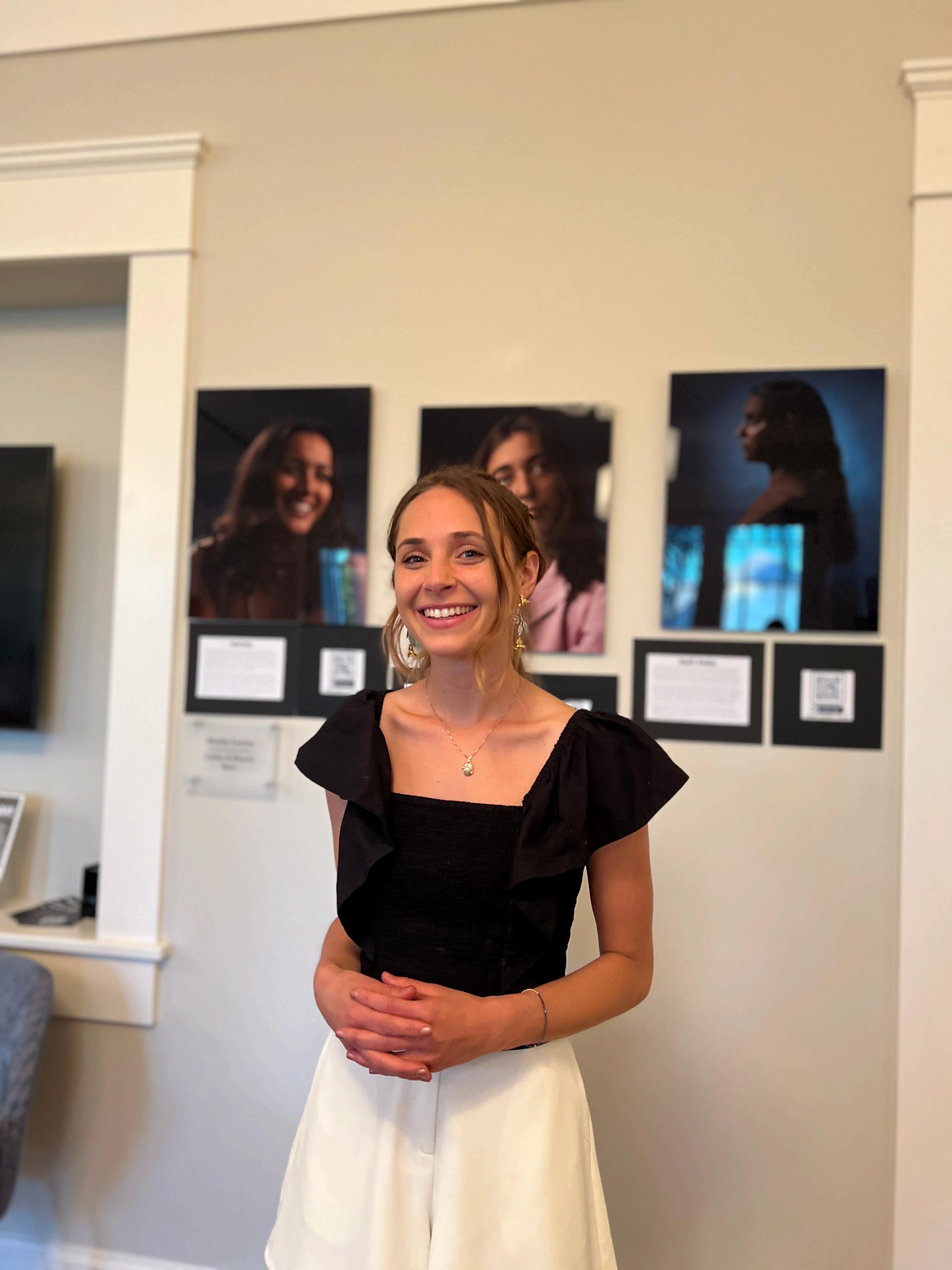
After hundreds of conversations and hours spent listening to students’ stories, it became clear that the limiting lens through which Jewish narratives have been and continue to be told was a problem that left many students feeling like they struggled to belong.
As an artist and a photographer, I had to do something with this realization. I began using portraiture photography, reflective interviews, and storytelling to change the narrative, foster connection, and instigate reflection on intersectional identities.
Two years and about 90 interviews spanning students from Tulane to Cal Berkley to Ithaca College later, I’m in awe of students’ vulnerability and ability to reflect on how their experiences have shaped their identity.
By sharing their stories, students uplift us all, reminding us of the complexity of the human experience.
I hope the impact of this project extends beyond this book and encourages all to engage with and listen to people’s stories, for what we’re doing with the Portrait Identity Project is telling stories of the contemporary that will become history.
It’s also important to note that while this project serves as a platform to share, discover, and document individual stories, it’s limited to the people I had the privilege to interview and photograph. This body of work is ongoing and by no means a complete representation of all people who embrace “Jewish” as a part of their identity.
– Julia Mattis

